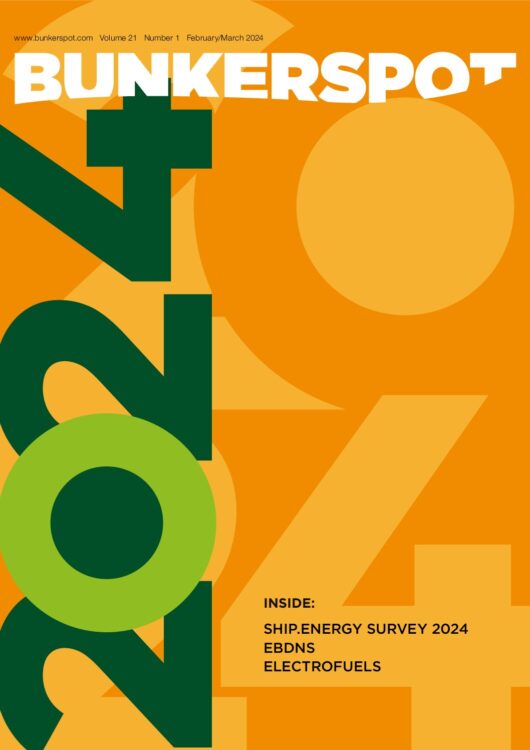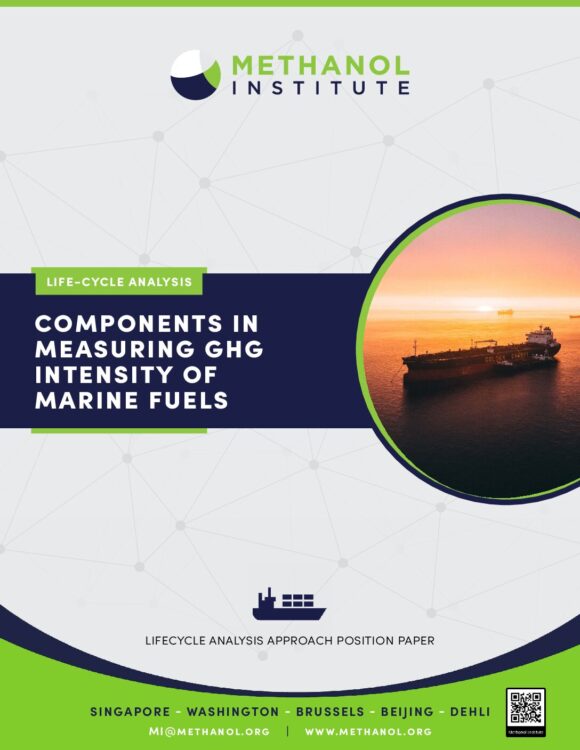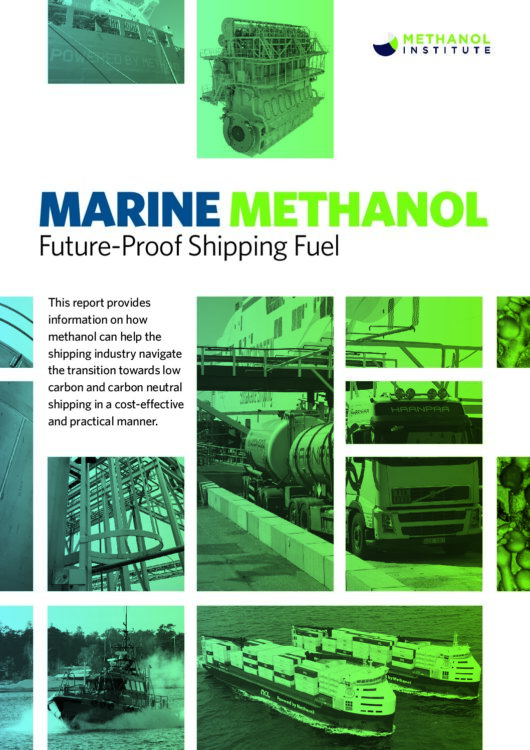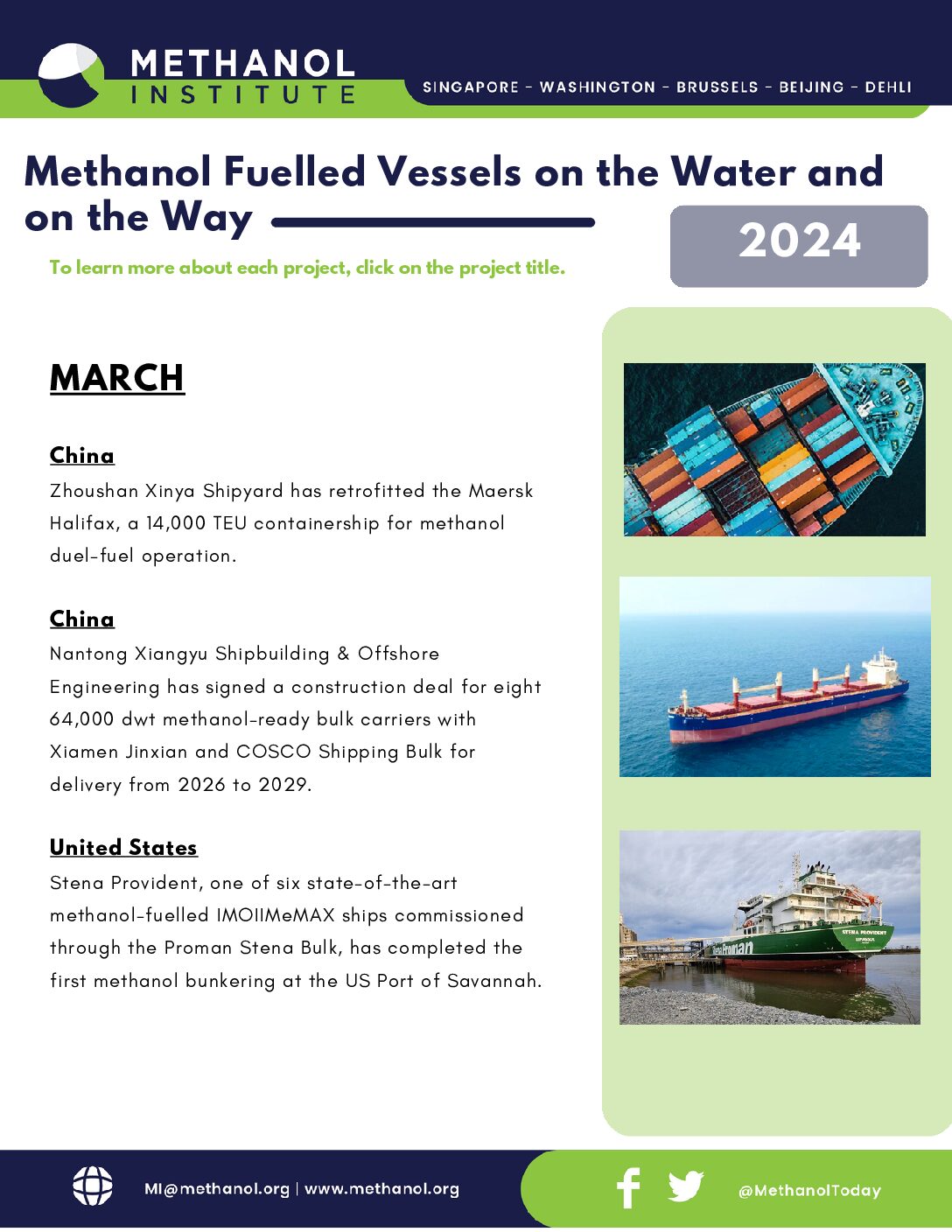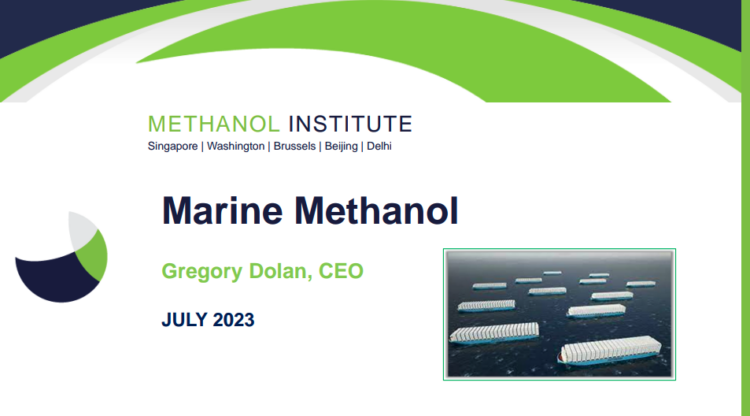E-Methanol & Biomethanol Plants and Ports
BUNKERSPOT: Going Mainstream
From new engines to retrofit solutions, design approvals to vessel orders and bunkering agreements, methanol was everywhere in 2023, but as Gregory Dolan, CEO of The Methanol Institute discusses in Bunkerspot, the transition process to a cleaner shipping industry continues.
So, what does 2024 have in store for methanol as a marine fuel? The signs are certainly positive; methanol provides a practical, implementable pathway for the maritime industry regarding timescale, regulation, and fuel production. The technology is in place: proven, approved, and straightforward to implement in practice.
As the IMO develops its own GHG lifecycle guidelines this year, it will be important to adopt a transition approach that facilitates the contribution of conventional, blue, and green fuels towards targets for low carbon and for net carbon neutral emissions. A market mechanism will ultimately be essential and is something the industry needs to work together to promote.
We will continue providing the support the industry needs, from newbuilding and retrofit decisions, informing regulation and policy, and promoting the infrastructure enabling the energy transition.
Lifecycle Analysis Approach Position
The Methanol Institute has prepared a position paper outlining key considerations for building the life-cycle approach behind the International Maritime Organization’s Greenhouse Gas Reduction Strategy.
This brief identifies LCA components to simultaneously ensure the effectiveness of IMO’s measures and support the integration of low-carbon and net-carbon neutral fuels into the global marine fuel pool. It also suggests additional components complimentary to LCA, including a mass balance approach, blended fuels, book and claim, and onboard carbon capture.
Marine Methanol Future-Proof Shipping Fuel
MI has published the first comprehensive guide* to methanol as a marine fuel. As the shipping industry continues its transition towards net carbon-neutral operations, owners are increasingly choosing methanol as a fuel that can help them progressively reduce emissions in line with regulatory targets.
‘MARINE METHANOL Future-Proof Shipping Fuel’ has been produced to help stakeholders across the industry access the information they need to support decision-making on which alternative fuel is right for their fleet.
Sections of the report address regulatory drivers, environmental performance, engines and fuel systems, bunkering, handling and safety characteristics, costs and pricing, availability, and feedstocks for conventional and renewable products. Also included are case studies on first movers, including AP Moller-Maersk, Waterfront Shipping, Proman Stena Bulk, and the conversion of ropax ferry Stena Germanica.
FASTWATER:
Methanol Fueled Pilot Boat
Methanol Vessels On the Water and On the Way!
Methanol-fueled vessels are on the water today, and more are on the way. The Methanol Institute tracks global methanol vessel announcements, which are highlighted here.
As you will see here, there is a broad range of methanol-fueled vessels including pilot boats, tug/push boats, ferries, cruise ships, superyachts, crew transfer vessels, lift and multi-purpose ships. We also see more methanol-compatible engines from the major OEMs, vessel designs, and class society approvals.
*Previous years available on request
Methanol: An Emerging Marine Fuel
Methanol is a simple, safe liquid fuel, miscible in water, and is plentiful, available globally, price competitive to MGO. It works with existing engine technologies as a drop-in or a dual fuel. It also complies with IMO2020 providing a pathway to IMO 2030 and 2050. It requires only minor modifications to current bunkering infrastructure. Read the presentation to see more benefits of using methanol as a marine fuel.


